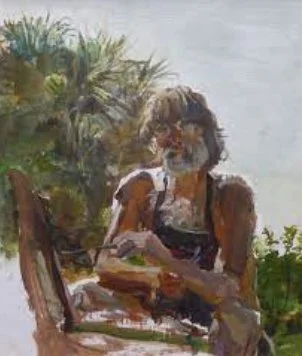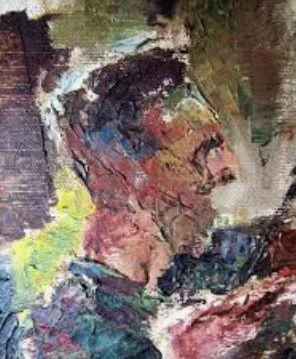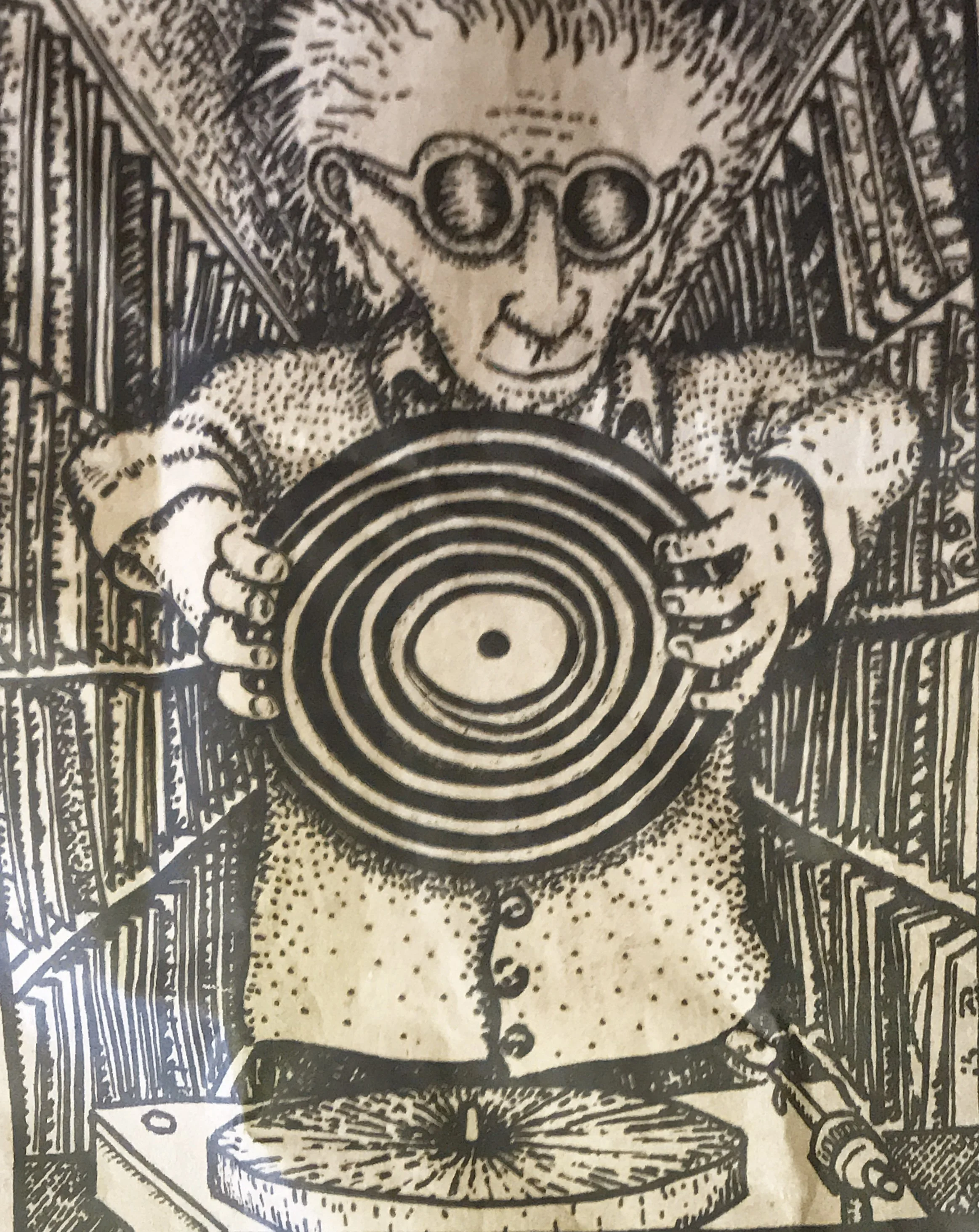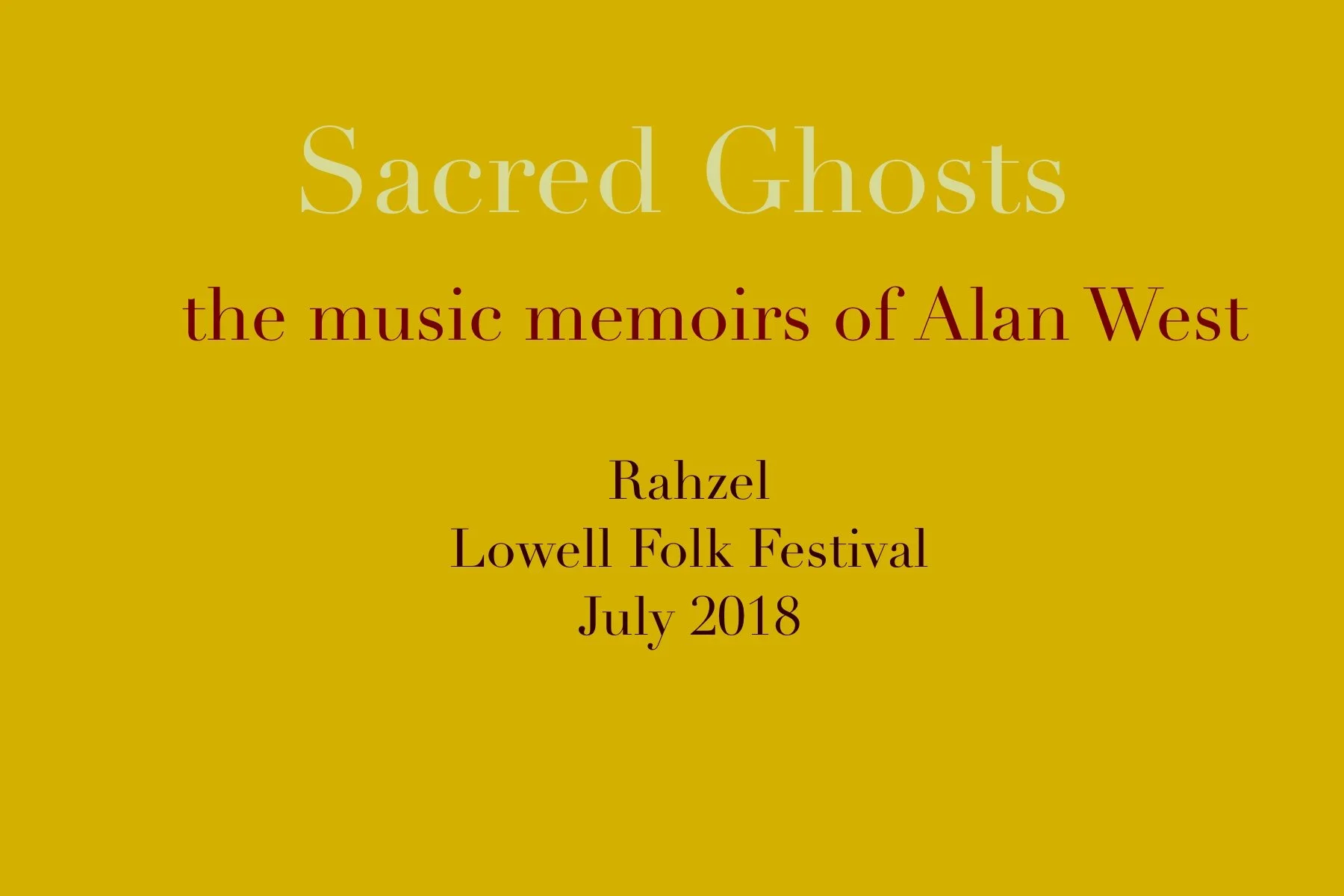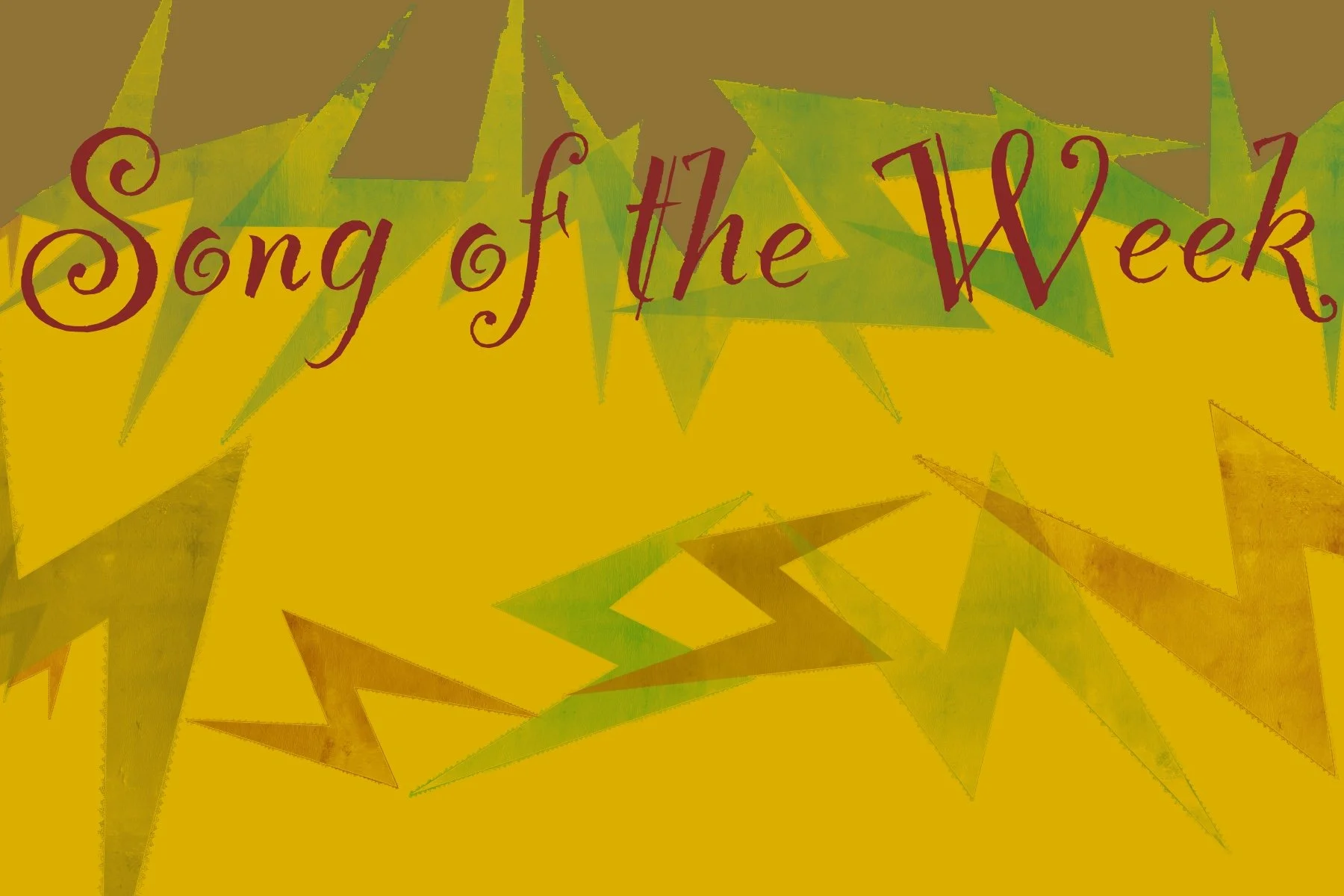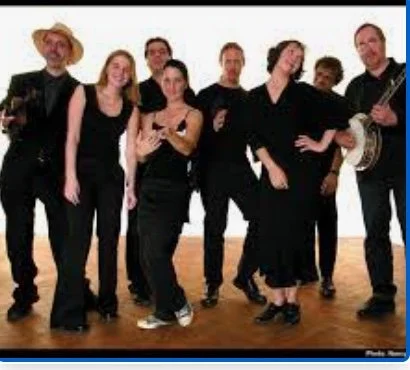Eric Von Schmidt self portrait
Mr. Von Schmidt’s work came across me purview recently and I was a bit stopped in my tracks. An original voice, even an unbridled exceptionalist. He was certainly a lead off man in the first innings of the 1960’s folk implosion. Before the coffee house was ground into near extinction. If Bob Dylan references you in a song on his first album you are destined for being seen as da great poo ba! Count on it.
He sure found something in this one, but damned if I know what it was. And it had to get out. Just listen to that horn section. The music is daffy and plucky. They had to use a hoist to get it up out of its hole!
Ric Von Schmidt abstraction. He was a Renaissance renegade illustrator and painter with a deep trove of quite distinctively angry reinactions of historical events.
Mascot found on the bags of Instant Karma Record Shop out on the Cape.
Trailer from a film about Mr. Maalouf’s work.
“Rahzel
Lowell Folk Festival
July 2018
Beatboxing is a form of vocal percussion considered the “fifth element” of hip hop culture, completing the quintet of hip hop art forms along with DJing, MCing, graffiti, and breakdance. First emerging from working-class African American communities in New York City in the late 1970s, beatboxing exemplifies the hip hop philosophy of creating meaningful artistic expressions with limited resources. Beatbox artists use their voices to mimic the sounds of the drum machine and the record turntable, but also horns, string instruments, and much more.
If you have been a follower of Sacred Ghosts, you are probably now saying, “What’z he been smoking!” Well, beat boxer supreme, then 53 year-old Rahzel energized and amazed the Lowell crowd of infants to nonagenarians and me on a hot weekend at the end of July in 2018.
I have never been a big fan of hip-hop but I surely felt that Grandmaster Flash (dubbed the “Toscanini” of the turntables) and the Furious Five’s, “The Message” released in 1982 was an instant classic.
It’s like a jungle sometimes
It makes me wonder how I keep from going under
It’s like a jungle sometimes
It makes me wonder how I keep from going under
Broken glass everywhere
People pissing on the stairs, you know they just don’t care
I can’t take the smell, can’t take the noise
Got no money to move out, I guess I got no choice
Rats in the front room, roaches in the back
Junkies in the alley with a baseball bat
I tried to get away, but I couldn’t get far
’Cause a man with a tow truck repossessed my car
Rahzel’s cousin Rahiem was an original member of the Furious Five, and Rahzel recalls sneaking into their shows, “watching Grand Master Flash before I could even see over the gate.” Rahzel embraced the philosophy that “‘not having’ was never an excuse for ‘not doing.’” “Economically, everyone doesn’t have instruments,” Rahzel explains. “You have to create that ambience, you have to create those instruments.”
The art form spread rapidly in the early 1980s, when performers like Doug E. Fresh, the self-proclaimed first “human beatbox,” took the art form national.
Through both his solo work and his stint with the live-music hip hop group The Roots, Rahzel is credited with bringing beatboxing back to the fore of hip hop in the 1990s. Rahzel can sing a chorus and beatbox the back up simultaneously, an astounding skill showcased on his signature song, “If Your Mother Only Knew,” from his groundbreaking first album, 1999’s Make the Music 2000. Rahzel has worked with artists from Björk to Branford Marsalis, and continues to push the limits of what a beatbox artist can create with only their lips, tongue, cheeks, and Adam’s apple.
Rahzel is one of the biggest names in beatboxing today, redefining the limits of the human voice. Known as “the Godfather of Noyze,” at Lowell he invited young kids up on stage to try out their beatboxing chops and dancing skills. “To me, beatboxing saves lives and I’m a prime example of it. It inspires kids to be creative and motivated.” It was marvelous”
“In a razor town you take whoever
You think you can keep around
There’s an echoed sound
That permeates the sidewalk
Where she shuffles ‘round
It’s a big machine
It used to be the avenue of changing dreams
And she’s a lonely thing, sweeping up the glitter
While she pulls the strings
Take a long last look
Before she turns to stone
And what the last man took
And what was long, long gone
The way it used to be
I wasn’t there to see it working properly
And now it seems to me
That both of you are suffering
You know I’ve heard her say
That you’re the only reason she’s alive today
And I just turned away
Thinking maybe she was right
So, say your last goodbye
Make it short and sweet
There ain’t no way for you to fly
With her hanging on your feet
Let her go out if she wants to
And if she don’t, go out yourself
Don’t take sorry for an answer
Unless you really want what’s left
’Cause in a razor town
The only thing that matters
Tends to bring you down
And there’s no way around
But maybe you can barrel through
”
A cue stick supra group The Wayfaring Strangers: what with the likes of Jennifer Kimball, Andy Statman, Lucy Kaplansky, Matt Glaser, John McGann, Tony Trishka, Cathy Ryan, Bruce Barth, Jim Whitney, Laurie Lewis, Darol Anger et al. This is a convergence of the highest order. Two stalwart releases on Rounder Records. Worth the trip to investigate their assured gizmology!
